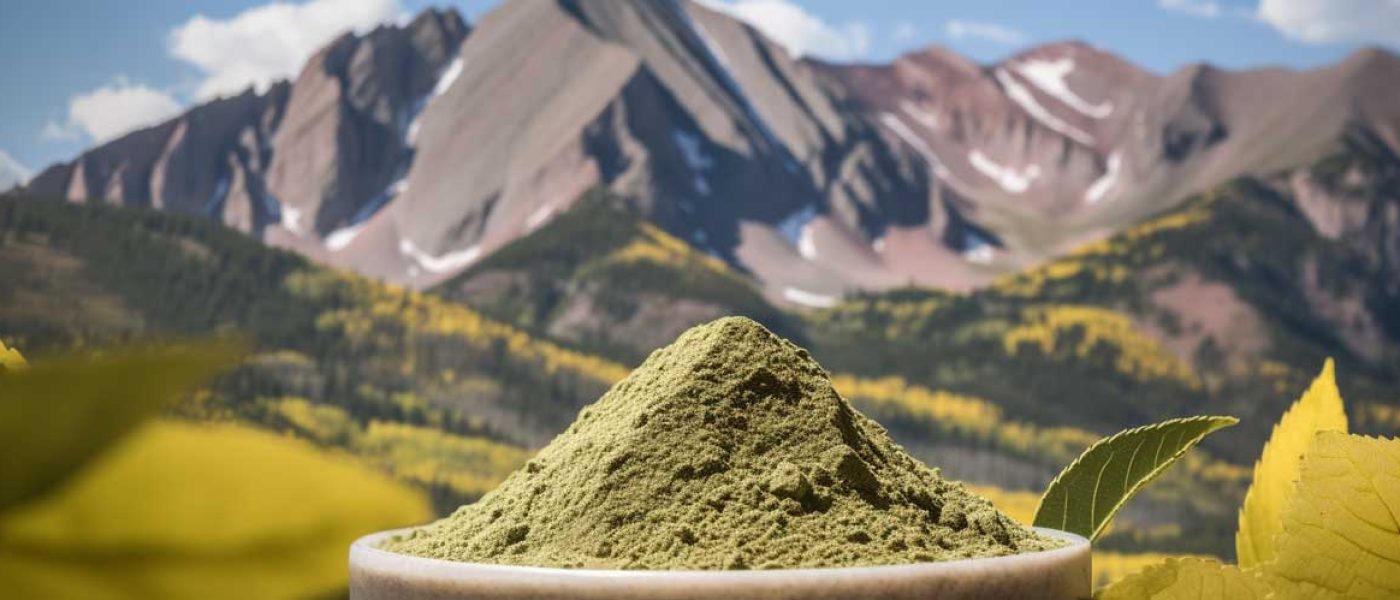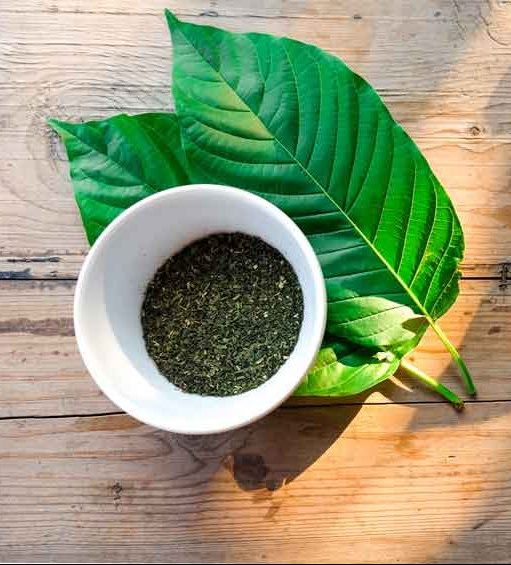IS KRATOM LEGAL IN COLORADO?

Kratom, the tropical evergreen tree native to Southeast Asia and scientifically known as Mitragyna speciosa, has become a topic of debate in recent years. While traditionally used for various purposes in the regions where it grows, kratom has gained popularity in the United States, leading to questions about its legality in different states, including Colorado.
Kratom Legality in the United States
To understand the legal status of kratom in Colorado, it is essential to grasp the broader context of kratom regulation in the United States. At the federal level, kratom is not regulated as a controlled substance, meaning there is no blanket prohibition on its sale, possession, or use across the country. However, the legal status of kratom can vary significantly from one state to another, as individual states have the authority to regulate substances within their jurisdiction.
Federal Agencies and Kratom
The US Food and Drug Administration (FDA) and the Drug Enforcement Administration (DEA) are two federal agencies that have been closely monitoring kratom use and its potential impact on public health. While the FDA has not approved kratom for any medical use, it has issued several warnings and alerts regarding the potential risks associated with the consumption of kratom products. The DEA, on the other hand, has considered classifying kratom as a Schedule I controlled substance, which would effectively ban it nationwide. However, this proposal has been met with significant opposition, leading to the DEA withdrawing its intent to schedule kratom in 2016, pending further research.
In the absence of federal regulation, state governments have taken it upon themselves to address the issue of kratom legality within their borders. This has led to a patchwork of laws and regulations that can vary widely between states, with some allowing unrestricted access to kratom, others imposing age restrictions and consumer protection measures, and still others banning the substance altogether.
State-Level Legislation and Kratom
Kratom is currently legal in most of Colorado. There are no specific restrictions on the sale, possession, or use of kratom within the majority of the state’s borders. However, it is worth noting that the legal status of kratom in Colorado has been subject to local regulation in some areas.


Kratom’s Legal Status in Colorado
The city of Denver, Colorado’s capital, has taken a more restrictive approach to kratom. In 2017, the Denver Department of Public Health and Environment (DDPHE) prohibited the sale of kratom for human consumption within the city limits. While this ban does not make it illegal to possess or use kratom within Denver, it does prevent vendors from selling kratom products that are explicitly intended for human consumption.
Outside of Denver, kratom remains widely available and unrestricted throughout the rest of Colorado. Many vendors throughout the state offer kratom products, and there are no age restrictions or specific regulations governing its sale, possession, or use.
Outside of Denver, kratom remains widely available and unrestricted throughout the rest of Colorado. Many vendors throughout the state offer kratom products, and there are no age restrictions or specific regulations governing its sale, possession, or use.
The Role of Kratom Advocacy Organizations in Colorado
Kratom advocacy organizations, such as the American Kratom
Association (AKA), have played a significant role in shaping the legal
landscape surrounding kratom in Colorado and other states. The AKA is a
nonprofit organization that advocates for the rights of kratom users and
supports responsible regulation of the substance. The organization has been at
the forefront of efforts to educate lawmakers, regulators, and the general
public about kratom and its potential benefits.
In Colorado, the AKA has been actively involved in the
legislative process, providing testimony, resources, and support to lawmakers
as they deliberated on the appropriate regulatory approach for kratom. The
organization’s efforts have helped to maintain the legal status of kratom in
most of the state and prevent the classification of kratom as a controlled
substance.
The AKA has also developed its Good Manufacturing Practices
(GMP) program, which sets standards for kratom vendors to ensure the safety and
quality of their products. Vendors who participate in the AKA’s GMP program are
subject to regular audits and must adhere to strict manufacturing and testing
protocols. This program has helped to raise the bar for the kratom industry as
a whole and has likely influenced the development of manufacturing standards
and quality assurance practices within the Colorado kratom community.
In addition to the AKA, other kratom advocacy organizations, such as the Botanical Education Alliance and the Kratom Trade Association, have also played a role in shaping the legal landscape in Colorado and across the United States. These organizations work to promote the responsible use of kratom, educate the public about the plant, and advocate for consumer-focused regulation that protects the rights of kratom users while ensuring the safety and quality of kratom products.
Kratom in Colorado: A Cultural Perspective
The unique culture of Colorado has substantially impacted the state’s viewpoint on kratom. With a firm foundation in individualism and personal freedom, Coloradans generally lean towards accepting kratom as a matter of personal choice, rather than an issue warranting strict government control. This cultural atmosphere has enabled the state’s relatively tolerant stance on kratom, as well as the plant’s growing appeal among its residents.

Kratom’s Legal Status in Neighboring States
It is worth noting the legal status of kratom in states neighboring Colorado, as laws can vary significantly from one jurisdiction to another. As of September 2021, kratom is legal in the following neighboring states:
- Wyoming: Kratom is legal and unregulated, with no age restrictions in place.
- Nebraska: Kratom is legal and unregulated, with no age restrictions in place.
- Kansas: Kratom is legal and unregulated, with no age restrictions in place.
- Oklahoma: Kratom is legal for individuals aged 18 and older, with the passage of the Kratom Consumer Protection Act in 2021.
- New Mexico: Kratom is legal and unregulated, with no age restrictions in place.
- Utah: Kratom is legal for individuals aged 18 and older, with the passage of the Kratom Consumer Protection Act in 2019.
Being familiar with the legal status of kratom is crucial for individuals residing near state borders or traveling across various states, given the intricate system of regulations governing its use. To prevent any legal complications, it is imperative for kratom consumers to stay informed about the laws regarding the possession and consumption of kratom in their respective areas.
The Future of Kratom Legality in Colorado and Beyond
While kratom is currently legal in most of Colorado, it is important to recognize that the legal status of kratom is subject to change. Lawmakers and regulators may revisit the issue in the future, particularly as more research on kratom becomes available or in response to public health concerns.
It is essential for kratom users, vendors, and advocates to remain engaged in the legislative process and to stay informed about any potential changes to the legal status of kratom in their state. This includes participating in public hearings, contacting elected officials, and supporting advocacy organizations that work to protect the rights of kratom users.
Moreover, the kratom community must continue to promote responsible use and self-regulation, both in Colorado and nationwide. This includes adhering to the guidelines and requirements outlined in any kratom consumer protection laws or regulations, as well as supporting vendors who participate in quality assurance programs such as the AKA’s GMP program. By demonstrating a commitment to safety, quality, and responsible use, the kratom community can help to ensure the continued legality of kratom in Colorado and beyond.

So Is Kratom Legal in Colorado?
In summary, kratom is legal in most of Colorado, with specific restrictions on its sale for human consumption within the city of Denver. The legal status of kratom in Colorado has been shaped by various legislative and regulatory efforts at the local level, as well as the ongoing efforts of kratom users, vendors, and advocacy organizations to engage in the legislative process and promote responsible use.
As the legal landscape surrounding kratom continues to
evolve, both in Colorado and across the United States, it is crucial for kratom
users, vendors, and advocates to remain vigilant and engaged in the legislative
process. By staying informed about the legal status of kratom, participating in
public discourse, and promoting responsible use, the kratom community can help
shape a more balanced and rational approach to kratom regulation.
It is also important to recognize the role that research
will play in the future of kratom legality. As more studies are conducted on
kratom, its active compounds, and potential effects, lawmakers and regulators
will have access to better information to guide their decisions. The kratom
community should continue to advocate for and support research efforts to
further understand the plant and its implications.
Finally, it is worth reiterating the importance of
supporting kratom advocacy organizations that work tirelessly to protect the
rights of kratom users and promote responsible regulation. These organizations
play a crucial role in shaping the legal landscape, providing resources and
support to lawmakers, and raising public awareness about the plant. By
supporting and participating in these organizations, the kratom community can
help ensure that their voices are heard and that the legal status of kratom
remains protected for years to come.
The legal status of kratom in Colorado is a testament to the
power of grassroots advocacy and the importance of engaging in the legislative
process. Through the efforts of kratom users, vendors, and organizations,
Colorado has maintained a balanced approach to kratom regulation that allows
for continued access to the plant in most of the state while promoting
responsible use and consumer safety. This approach serves as a model for other
states grappling with the issue of kratom legality, and it highlights the
critical role that the kratom community plays in shaping the future of kratom
regulation in the United States.
Where to Buy Kratom in Colorado?
Colorado offers a variety of options for purchasing kratom products. Here are some tips for buying kratom from various types of vendors in Colorado:
- Local Smoke Shops and Vape Stores: Many smoke shops and vape stores in Colorado carry kratom products. Be sure to check customer reviews and ask for recommendations to find a reputable store.
- Specialty Shops: Some specialty stores focusing on herbal products and supplements also stock kratom. These shops are more likely to have knowledgeable staff who can guide you in selecting the right product for your needs.
- Online Shopping: Purchasing kratom online offers a wider variety of products at competitive prices. Make sure to choose a reliable vendor that is cGMP certified and conducts quality testing.
The Best Place to Buy Kratom in Colorado
When it comes to buying kratom products, Topline Kratom is the ultimate online destination. Here are some reasons why we stand out from the rest:
- Variety: Topline Kratom offers a wide range of kratom products, including kratom extracts, kratom capsules, kratom powder, kratom tablets, and even some delicious kratom coffee. With such a diverse selection, you’ll be sure to find the perfect product for your needs.
- Quality: Our products undergo the most rigorous quality control measures in the industry. Each batch undergoes a comprehensive examination and laboratory analysis by an accredited lab to detect any impurities or contaminants. Topline Kratom is proud to exceed Current Good Manufacturing Practices (cGMP) standards, which means that our production and manufacturing processes meet and exceed the highest standards of quality, purity, and safety.
- FREE Shipping: At Topline Kratom, we believe in providing the best value for our customers. That’s why we offer free shipping on all purchases over $100.
- Ethical Sourcing: We are proud of our dedication to ethical and sustainable sourcing methods. Our kratom is harvested meticulously from wild and renewable sources, prioritizing the preservation of the environment. Furthermore, we steer clear of regions treated with pesticides to ensure our customers receive the purest premium-grade kratom.
When it comes to buying kratom in Colorado, Topline Kratom is the go-to online destination. With our extensive product variety, commitment to quality, competitive prices, fast shipping, and ethical sourcing, you can confidently purchase kratom products knowing that you’re getting the best. Give Topline Kratom a try and experience the difference for yourself.
This article is based on publicly available information at the time of writing and is intended for informational purposes only. The legal landscape surrounding kratom, including rules and regulations, is subject to change. As such, readers are advised to always consult with their local government and local news organizations for the most up-to-date and accurate information regarding any changes to rules and regulations related to kratom in their area. The content provided in this article should not be considered legal advice or a substitute for professional guidance.
